 Abraham Lincoln
If given the truth, the people can be depended upon to meet any national crisis...
Abraham Lincoln
If given the truth, the people can be depended upon to meet any national crisis...
 Guildford news...
for Guildford people, brought to you by Guildford reporters - Guildford's own news service
Guildford news...
for Guildford people, brought to you by Guildford reporters - Guildford's own news service
Birdwatcher’s Diary No. 110
Published on: 23 May, 2016
Updated on: 23 May, 2016
By Malcolm Fincham
I must confess, with wildlife and flora flourishing so rapidly this time of the year it often leaves me wanting to be in all places at the same time, in fear of missing out on something.
Understandably and reluctantly I do have to tell myself this concept is totally unachievable. With hindsight I realise, especially when going through my photos, how fortunate I been have to see so much in such a short space of time, while trying to stay up to date with my reports.
A brief easterly flow of air during the second week of May did seem to be the cause of bringing a few rarities to the UK.
Although resisting the temptation of chasing around Cornwall in the hope of seeing a Dalmatian pelican.
Or even the recent sightings of a lammergeier vulture seen in Devon.
And the great spotted cuckoo in Dorset.
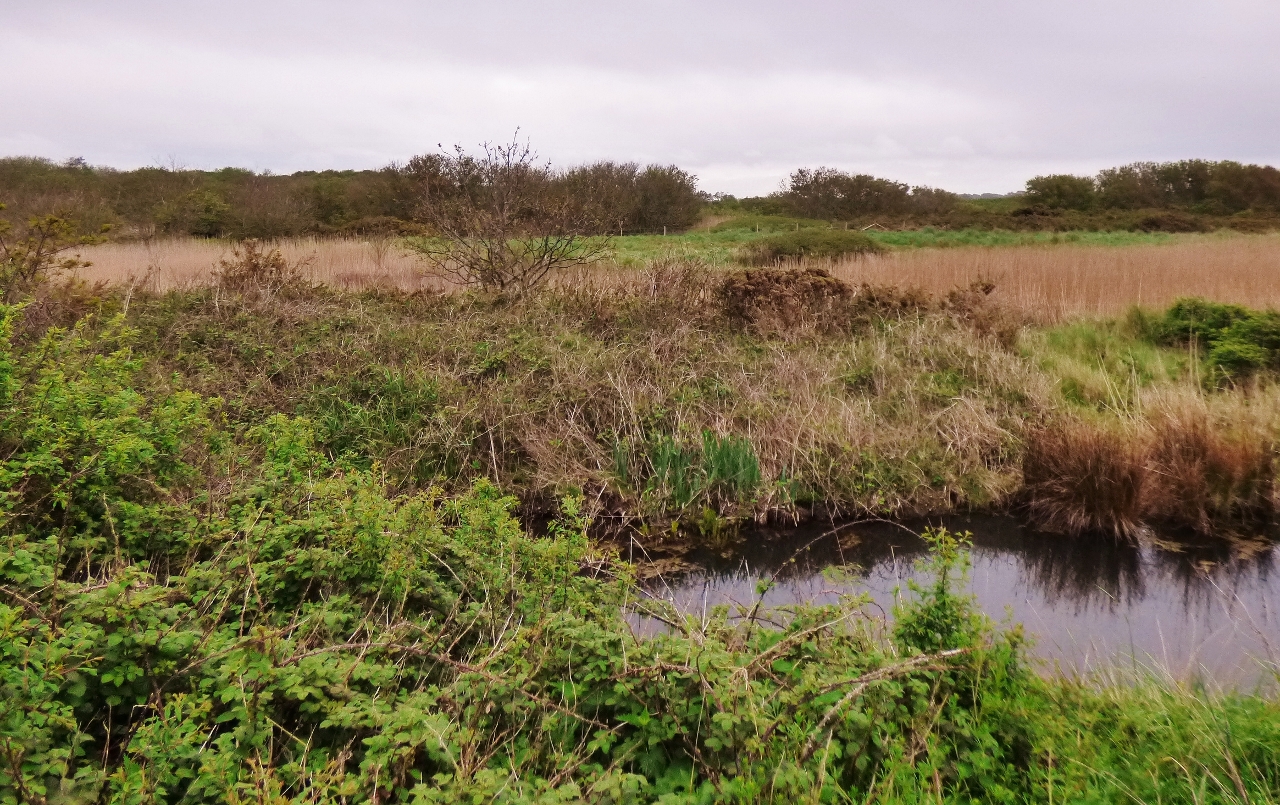
Looking across Titchfield Haven Nature Reserve from the coast road. Click on all images to enlarge in a new window.
I did however relent to a less adventurous trip down the A3 to Titchfield Haven RSPB in Hampshire to view another rare vagrant bird that had drifted in to the UK on the recent easterly flow of air.
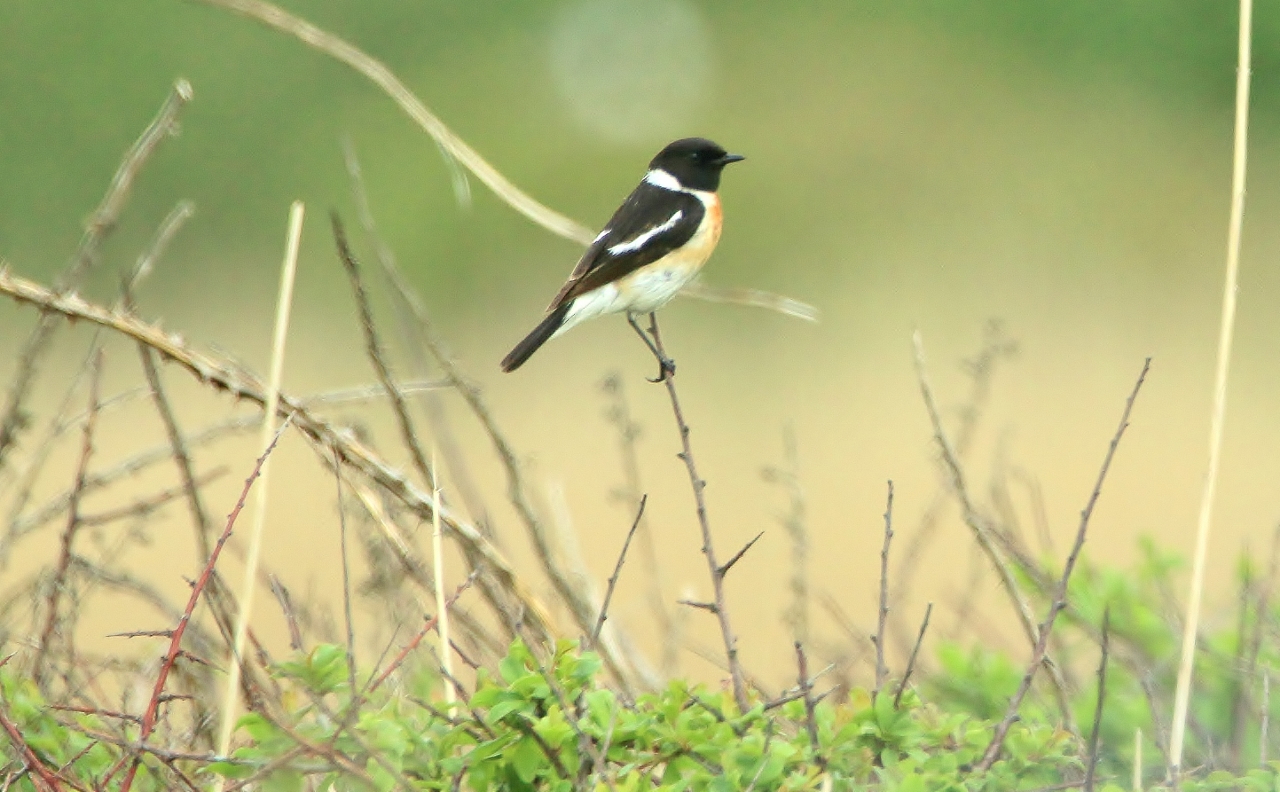
Caspian Stonechat as a split from Siberian Stonechat is a distinct possibility. Even the Siberian Stonechat may be split into Western Siberian based on recent mtDNA evidence.
A stunning male Caspian stonechat had been showing well there.
They are very different in appearance to other races of Siberian Stonechat. And certainly different to our own resident UK stonechat. They have a large amount of visible white in the tail. When the tail is spread the image it presents is striking and can look very much like a wheatear. This race of stonechat is also exceedingly rare in Britain having only been recorded on five previous occasions.
Having succeeded in getting some reasonable pictures of him, I also heard the sound of several Mediterranean gulls as they flew over. Even getting a record shot of one of this noisy species, with its nasal “yeah” call.
As well as several sandwich terns as they drifted back and forth along the coastline near by.
Also picking out a small flock of dunlin flying low across the sea.
More locally, with my love for our precious Surrey heathlands at this time of year, I couldn’t resist another trip to Thursley Common.
Having been dropped off on the A3 side of the common I took a slow amble along a dry sandy track lined with gorse, as I took in the sound of Dartford warblers, even getting a view of one, as it showed briefly.
While a few stonechats perched on top calling, as if on guard duty.
Common whitethroats and tree pipits, to name a few, could also be heard joining the symphony.
Taking a deep breathe of the heathland air, I stood a while looking across the expanse of heathland, taking in the view across to the western side of Thursley Common.
Also taking in the view of pair of common buzzards interacting, seeing a rare sight of them fly below me, as I watched down from the top of the hill.
Then ascending high into sky as they continued to interact with each other.
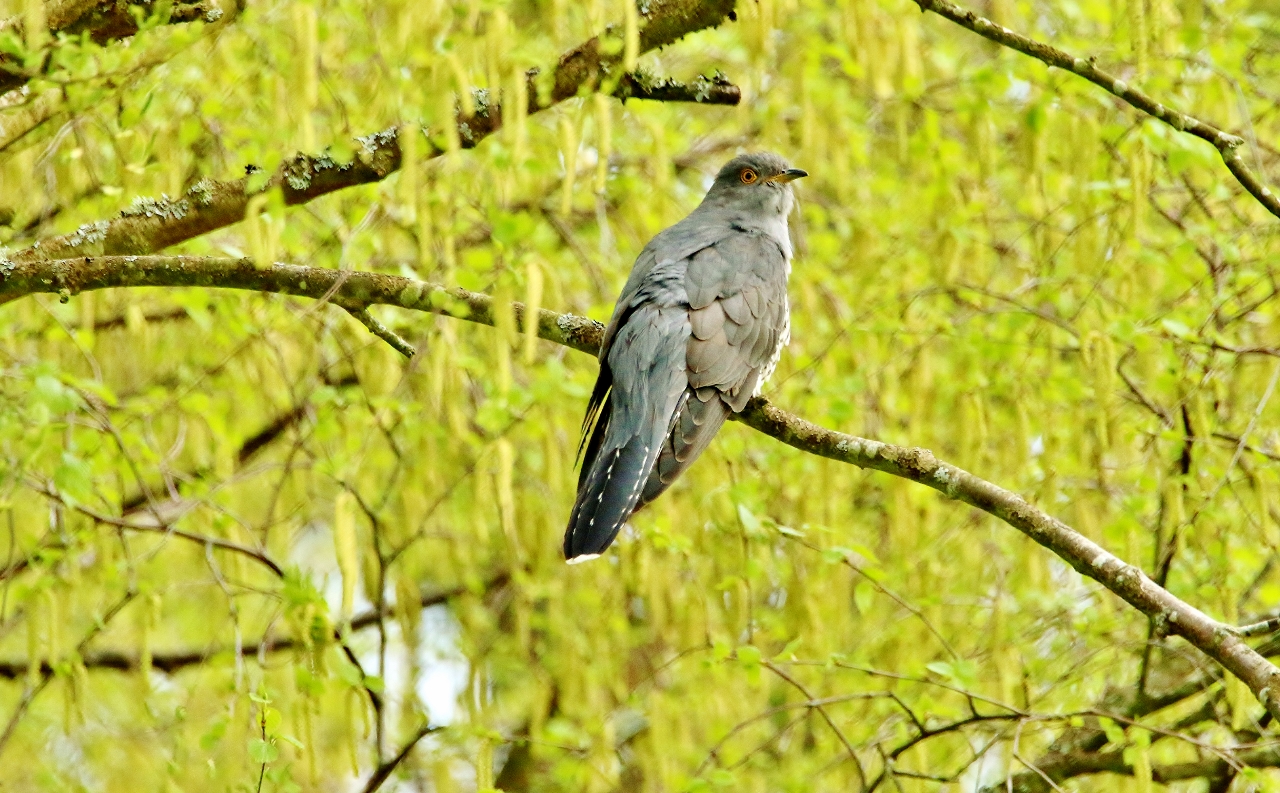
Adult cuckoos move back to Africa as soon as the breeding season is over – as early as the second half of June in southern England.
The view of the ‘Parish field’ and the distant sound of the cuckoo, drew me in its direction. Having got some good shots of it for my previous report, the temptation of getting some more was overpowering. I wasn’t left disappointed. He was still showing well and very confiding too.
So much so, I have put together a montage of some of the photos as well as adding some interesting facts, while spending some time there, quite overwhelmed by what was by far my best time ever spent ‘being at one’ with a cuckoo.
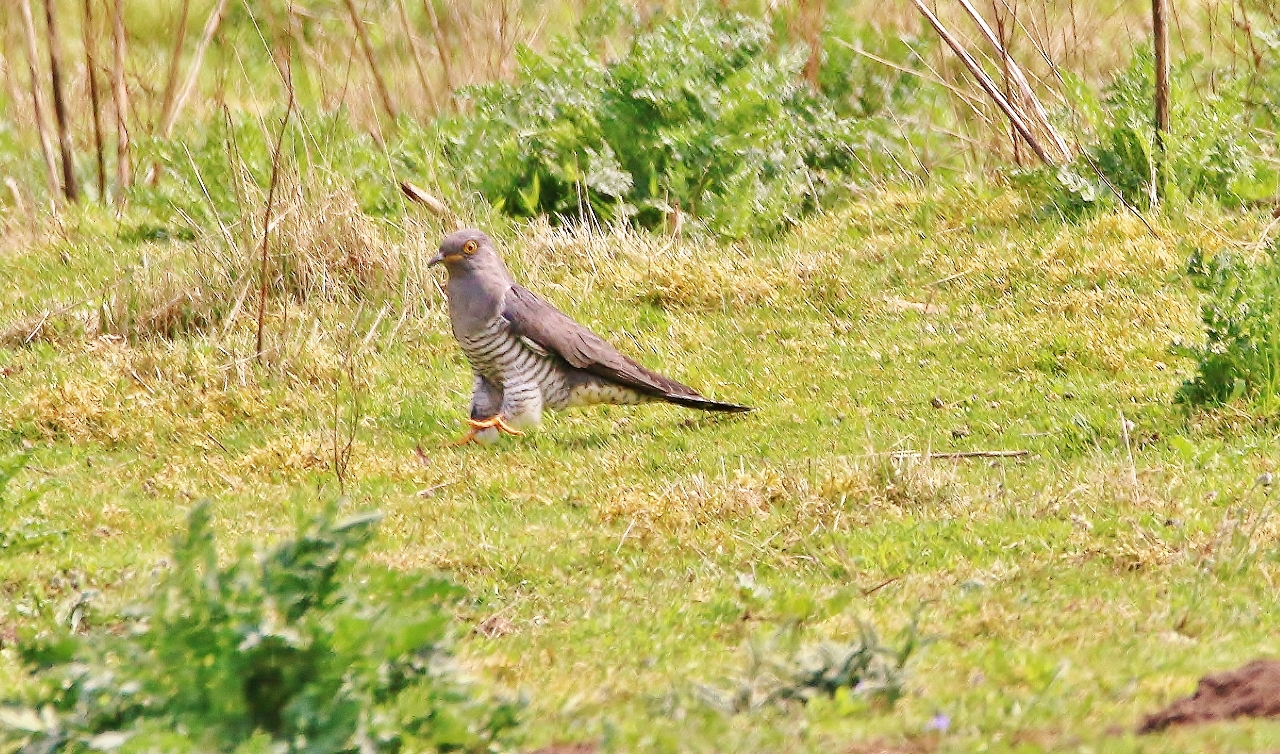
Cuckoos feed on the ground, but they walk rather clumsily. They are one of the few British birds to relish hairy caterpillars.
Not bothered by my presence, he even came down into the field to feed.
Returning back and forth from several of his favourite perches.

Juveniles migrate several weeks later than their real parents, yet they can still find their way to the regular wintering area despite never having visited it before.
It will be a sad day if in my view, if we no longer hear the iconic sound of the cuckoo!
Continuing my walk in the direction of the ‘moat pond’ a pair of hobbies flew overhead. One settling a while on a branch on a dead tree.
Although very few dragonflies had started to emerge from the surrounding water, it was now warm enough for a few lizards to come out and bask in the sun, along the boardwalk I walked as it warmed the wooden slats.
A surprise sighting for me was a grass snake. Too fast moving for me to get a picture of, as it slithered across the sandy path and disappeared out of sight when I reached the end of the boardwalk.
I was therefore most surprised when I arrived back to the car where my wife was waiting, to hear she had had a very similar sighting of one about the same size. Not wishing to run it over, she had pulled up in front of it as it lay in the middle of a narrow country lane, when she was driving over to meet me.
On closer inspection (and taking what I thought was a rather good photo of it on her mobile phone) she thought it might be already dead, as it lay with its mouth open. It soon came to life however when a kind gentleman (thinking it might be an adder) apprehensively moved it to the side of the road with a long stick.
Grass snakes, unlike adders, are not poisonous but if provoked will sometimes engage in a mock attack,rearing up, hissing and making striking motions. This is designed to intimidate so that the snake can make an escape. In contrast, when disturbed grass snakes sometimes pretend to be dead and lie perfectly still, often with their mouths open. Their last method of defences to excrete a foul smelling substance, they do this particularly well when handled.
And finally, a picture of me! Taken by Steve Simnett.
Responses to Birdwatcher’s Diary No. 110
Leave a Comment Cancel reply
Please see our comments policy. All comments are moderated and may take time to appear. Full names, or at least initial and surname, must be given.
Click on cartoon for Dragon story: Public Asked for Views on SCC’s Proposal for Reduced Speed Limits



Recent Articles
- Breast Screening Unit Comes To RHS Wisley
- Final Phase of Deepcut Redevelopment Approved
- GuilFest Returns to Stoke Park with Global Names and Local Soul
- Exercise May Aid Body’s Immune Response Against Cancer, Pilot Study Finds
- Letter: How Surveys of Public Opinion Should Be Organised
- Updated: Catapult Attacks, Shoplifting and Graffiti – the ASB Problem That Ash Is Facing
- A281 Closure Expected to Continue
- Guildford’s Green Day Shows Commitment to Net Zero by 2030 Remains
- Letter: We Should All Have a Say in How Our Local Government Is Reorganised
- Dragon Review: Madam Butterfly – Grange Park Opera


Recent Comments
- Roger Kendall on Updated: Catapult Attacks, Shoplifting and Graffiti – the ASB Problem That Ash Is Facing
- Anthony Williams on A281 Closure Expected to Continue
- Jules Cranwell on Flashback: Council Report Accepts Juneja Case Has Caused ‘Reputational Damage’
- Tony Harrison on Letter: Reduced Speed Limits Will Save Lives
- Tony Harrison on A281 Closure Expected to Continue
- Helena Townsend on Letter: Not All PIP Claimants Need It
Search in Site
Media Gallery
Dragon Interview: Local Artist Leaves Her Mark At One of England’s Most Historic Buildings
January 21, 2023 / No Comment / Read MoreDragon Interview: Lib Dem Planning Chair: ‘Current Policy Doesn’t Work for Local People’
January 19, 2023 / No Comment / Read MoreA3 Tunnel in Guildford ‘Necessary’ for New Homes, Says Guildford’s MP
January 10, 2023 / No Comment / Read More‘Madness’ for London Road Scheme to Go Ahead Against ‘Huge Opposition’, Says SCC Leader
January 6, 2023 / No Comment / Read MoreCouncillor’s Son Starts Campaign for More Consultation on North Street Plan
December 30, 2022 / No Comment / Read MoreCounty Council Climbs Down Over London Road Works – Further ‘Engagement’ Period Announced
December 14, 2022 / No Comment / Read MoreDragon Interview: GBC Reaction to the Government’s Expected Decision to Relax Housing Targets
December 7, 2022 / No Comment / Read MoreHow Can Our Town Centre Businesses Recover? Watch the Shop Front Debate
May 18, 2020 / No Comment / Read More



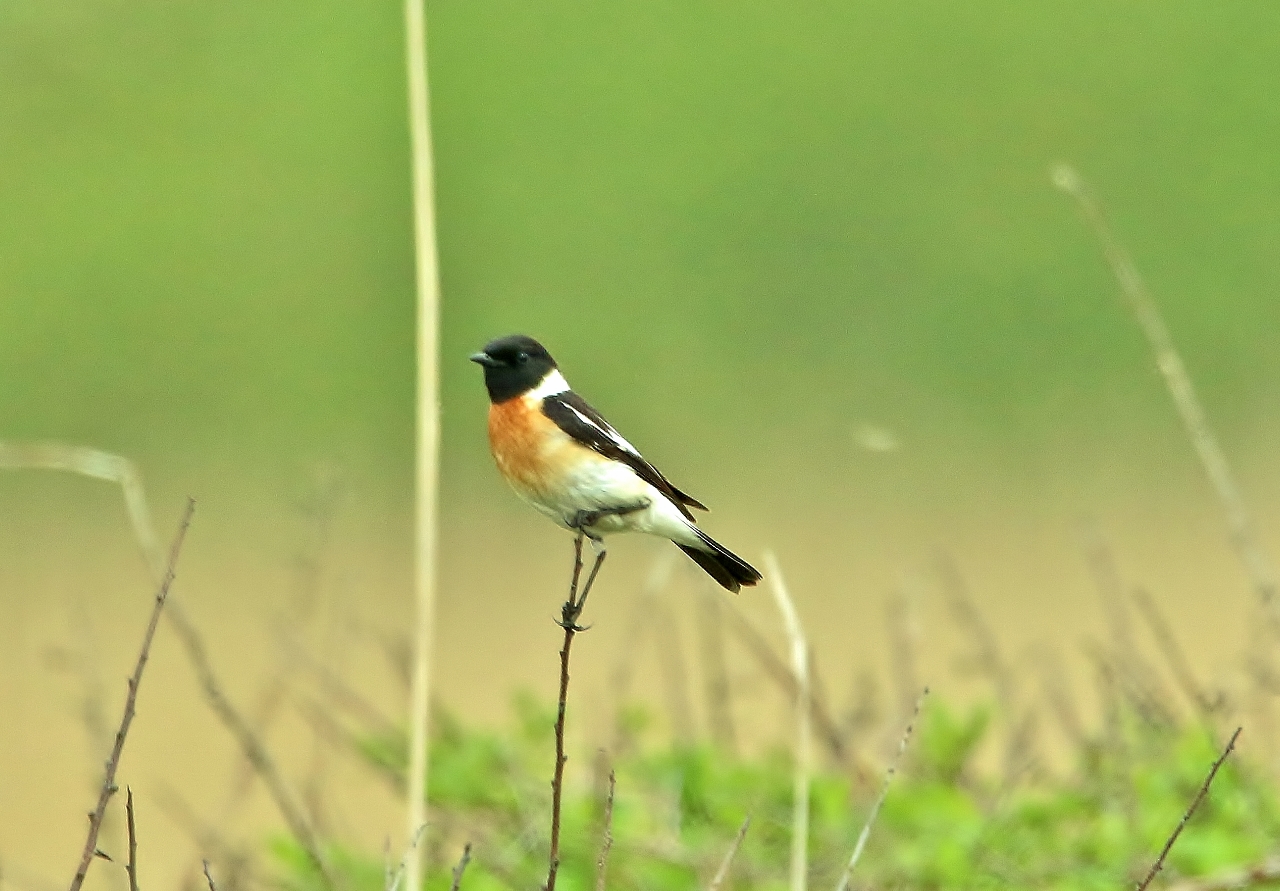
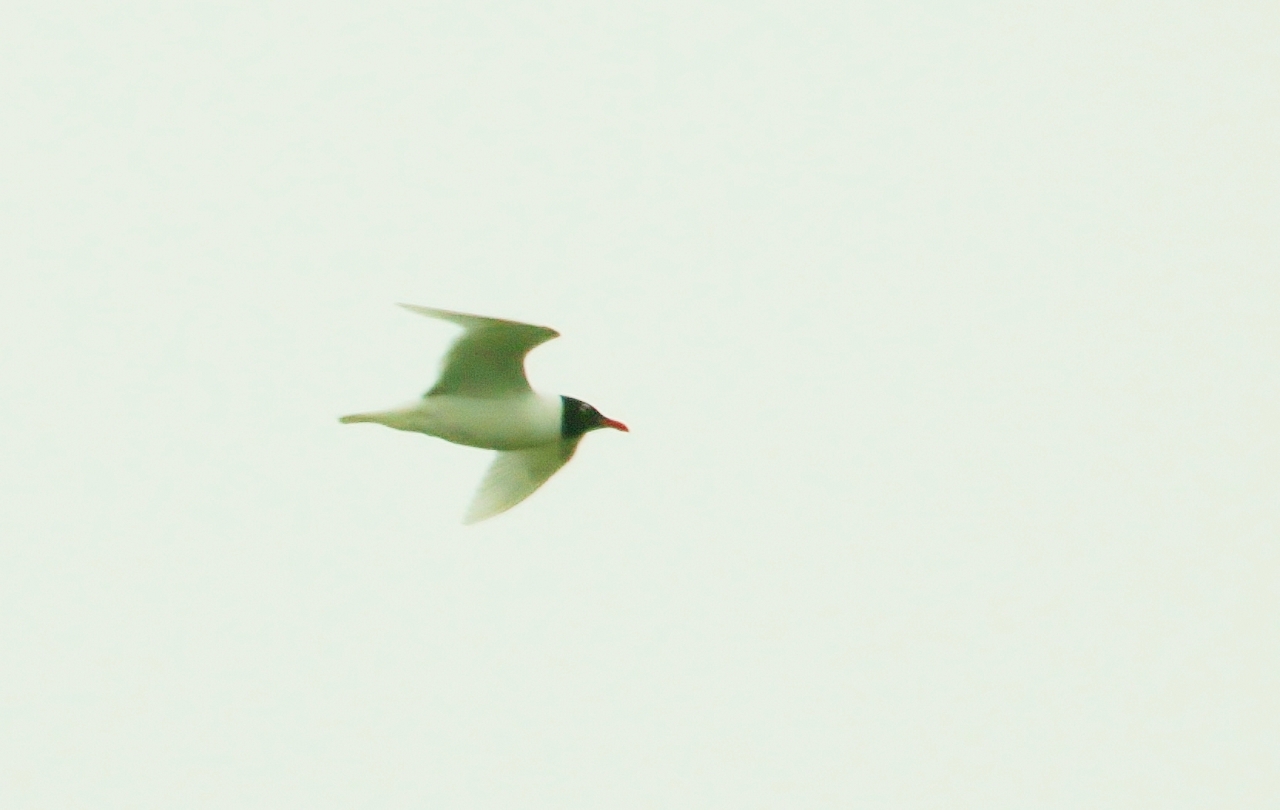
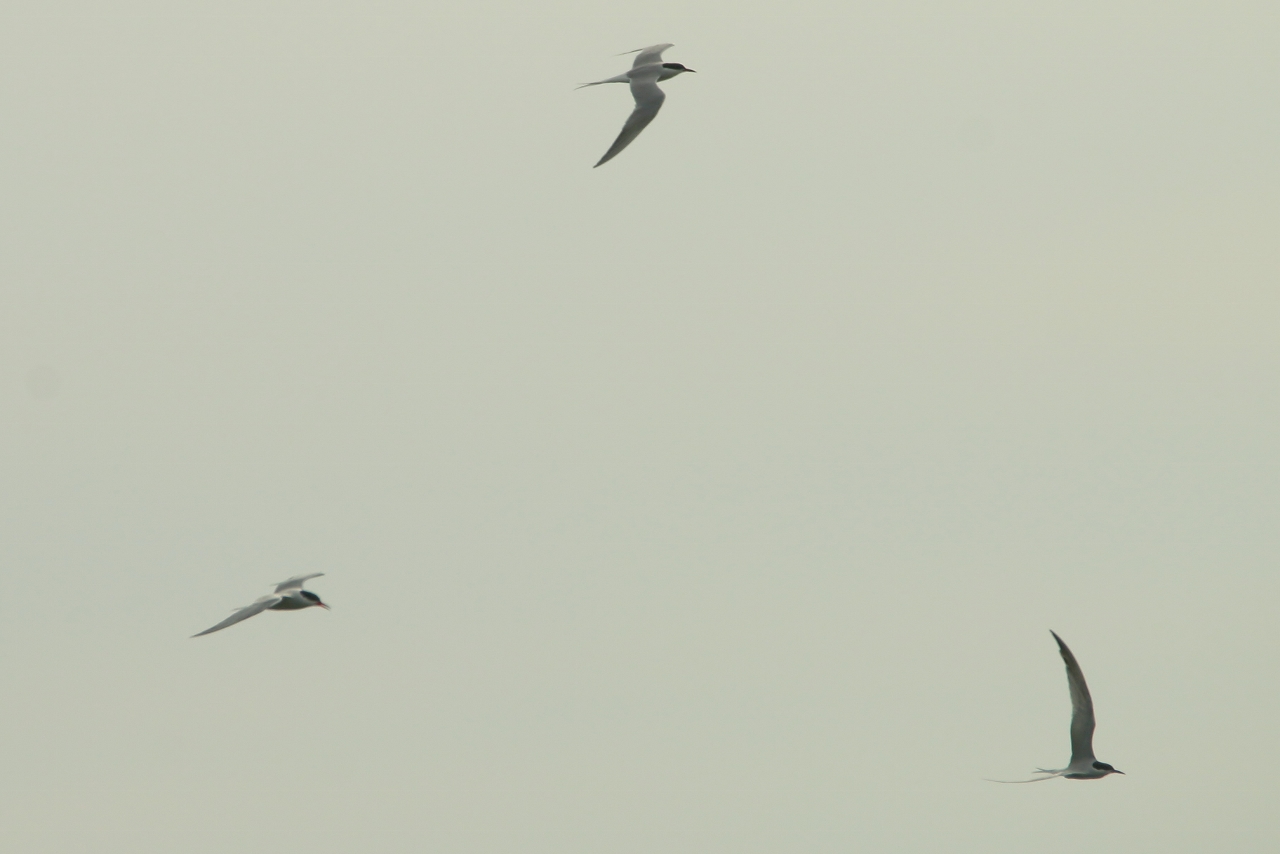
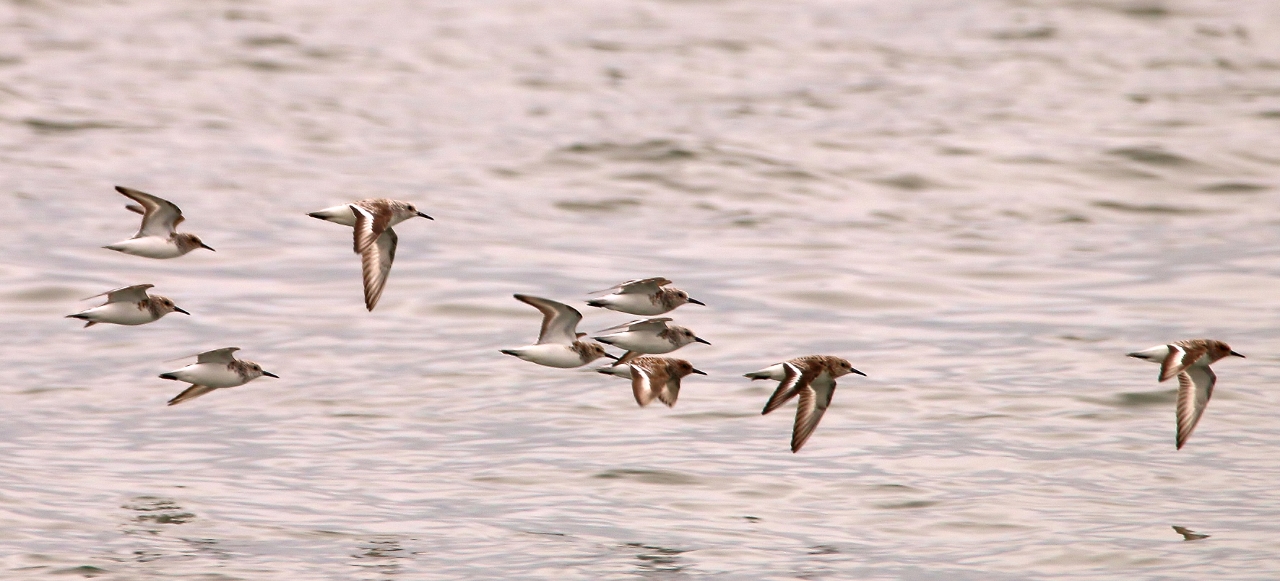
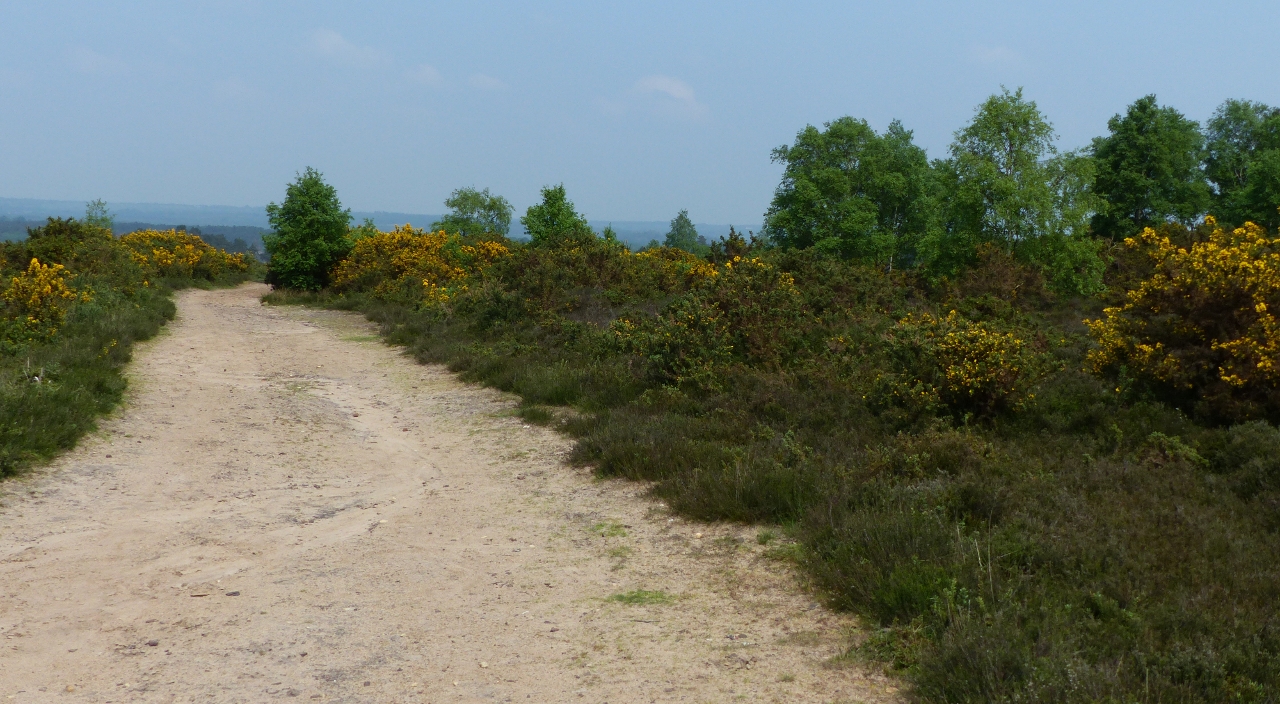
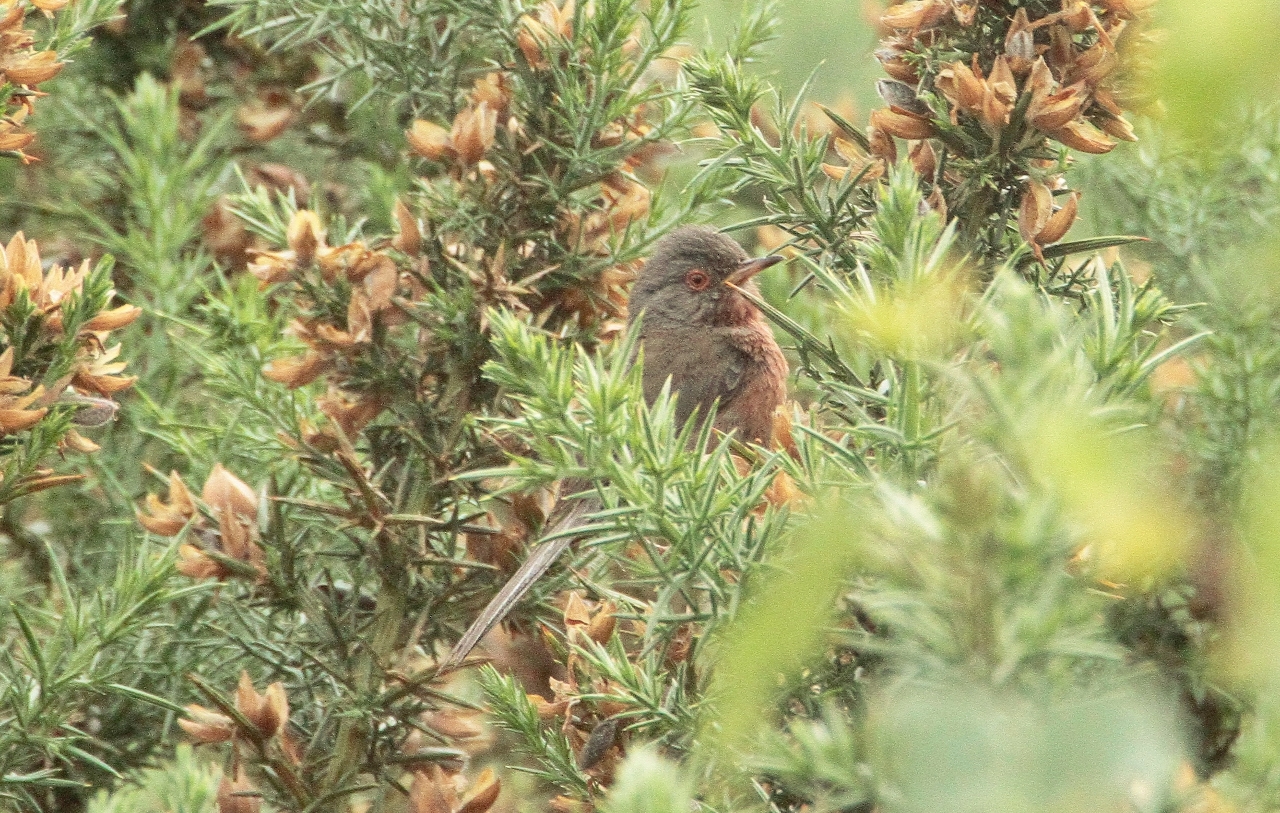
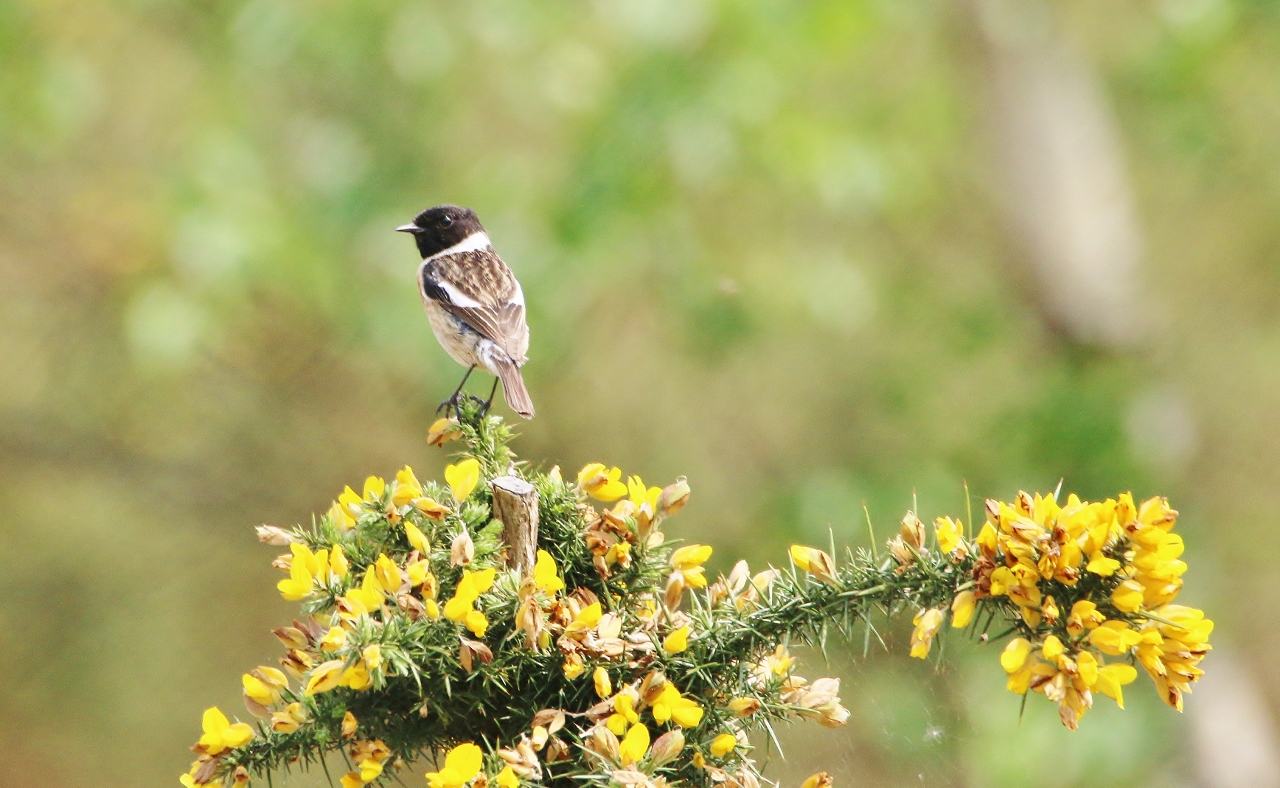
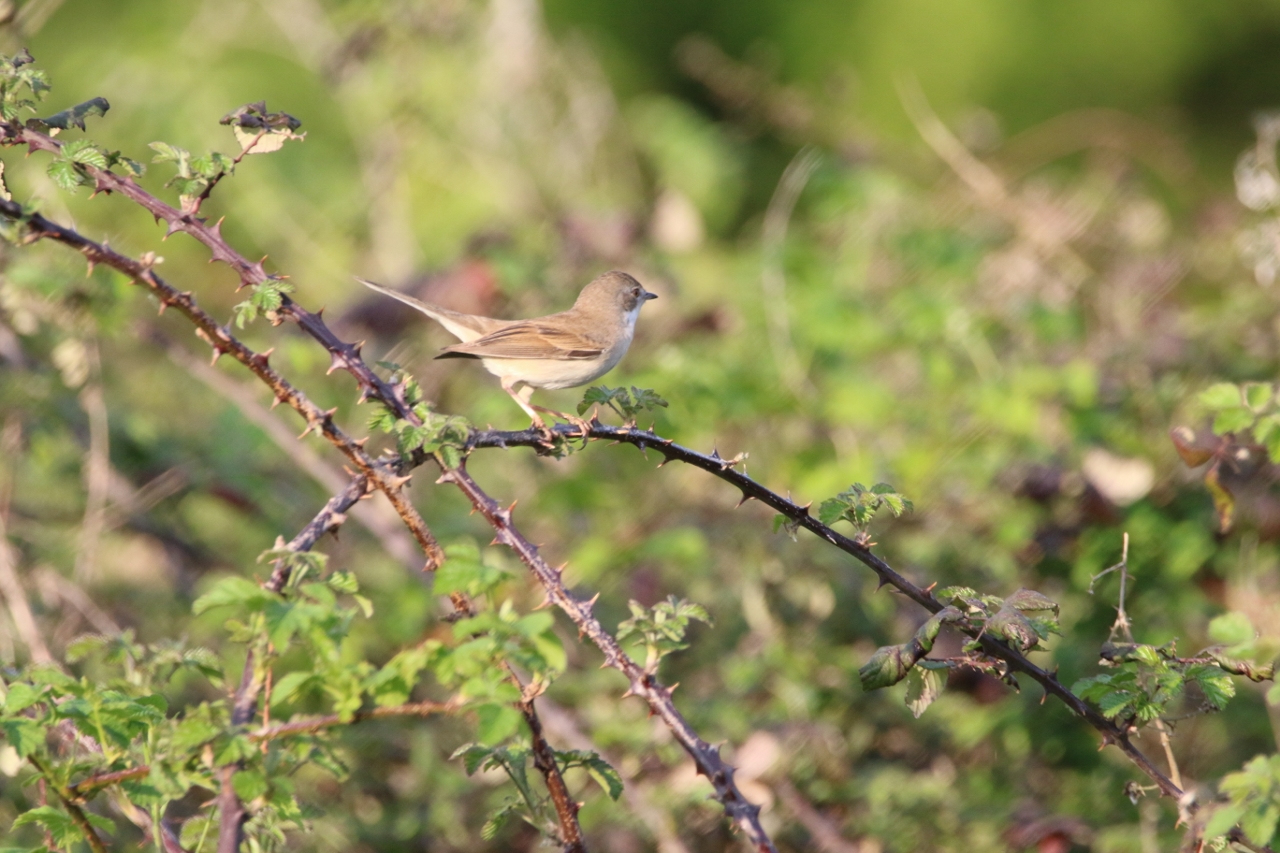
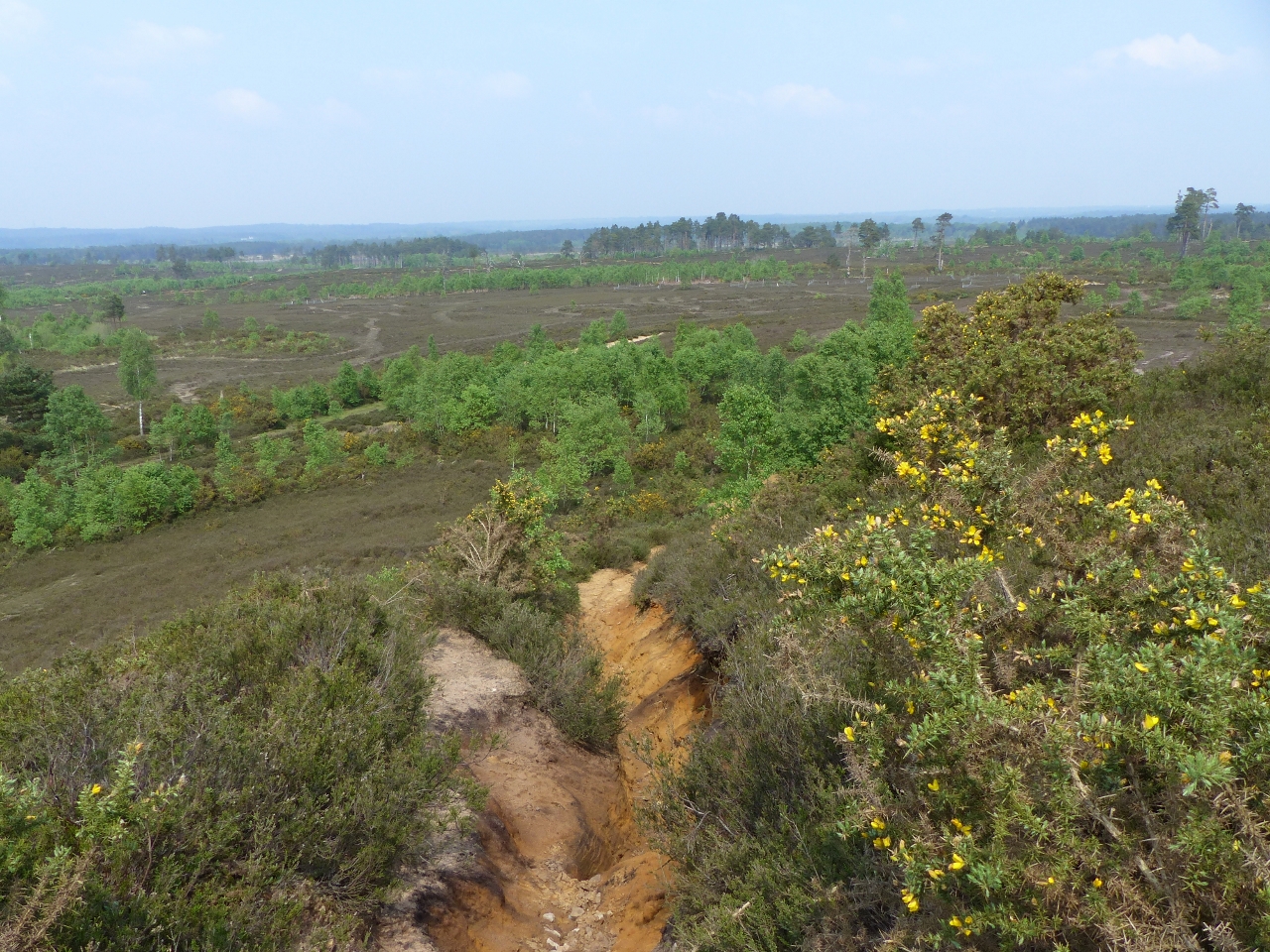
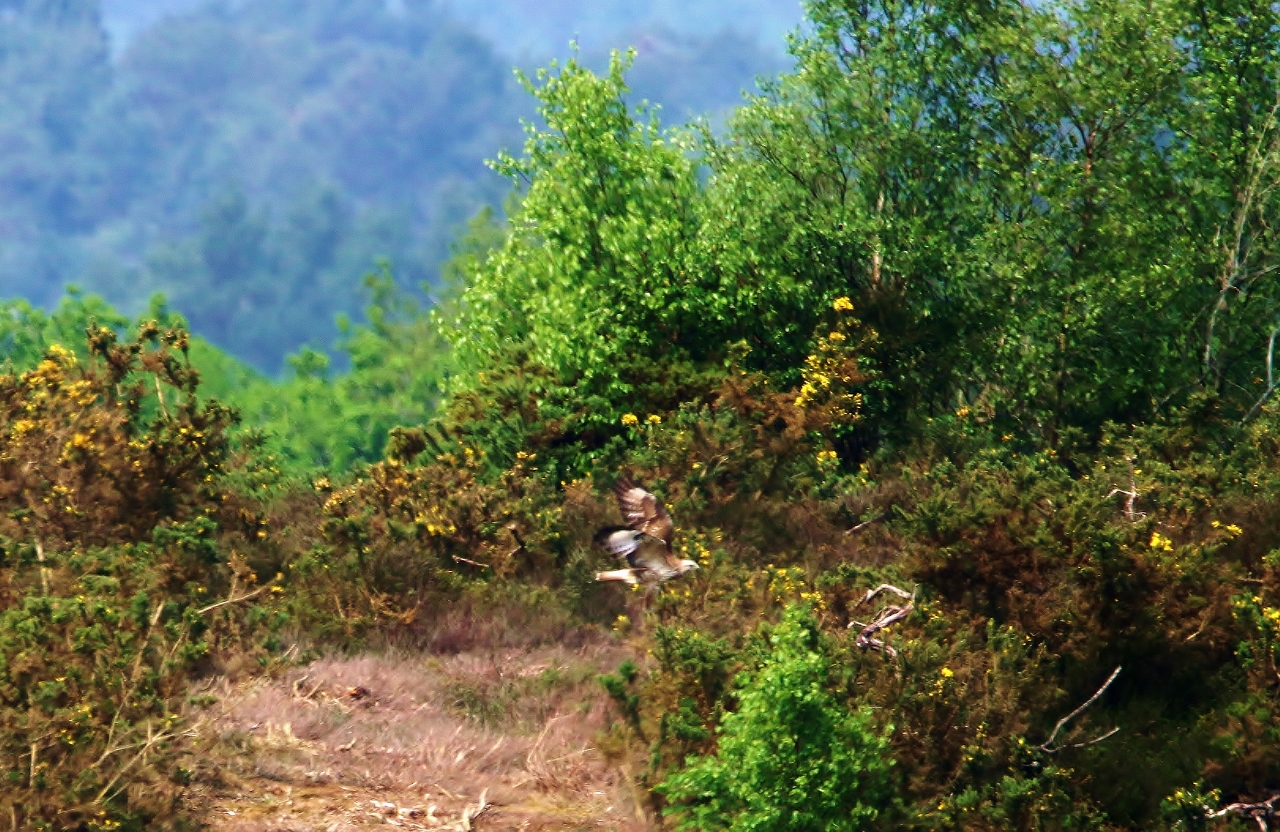
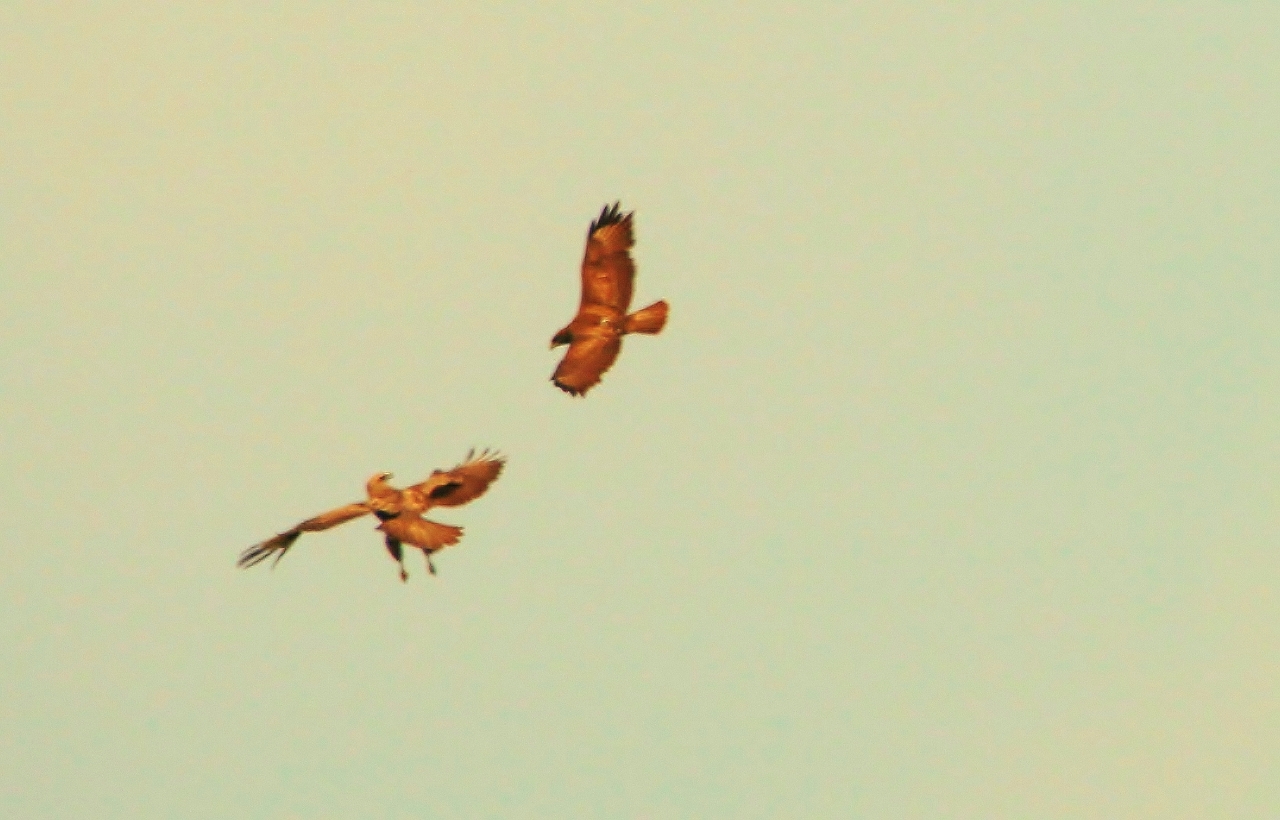
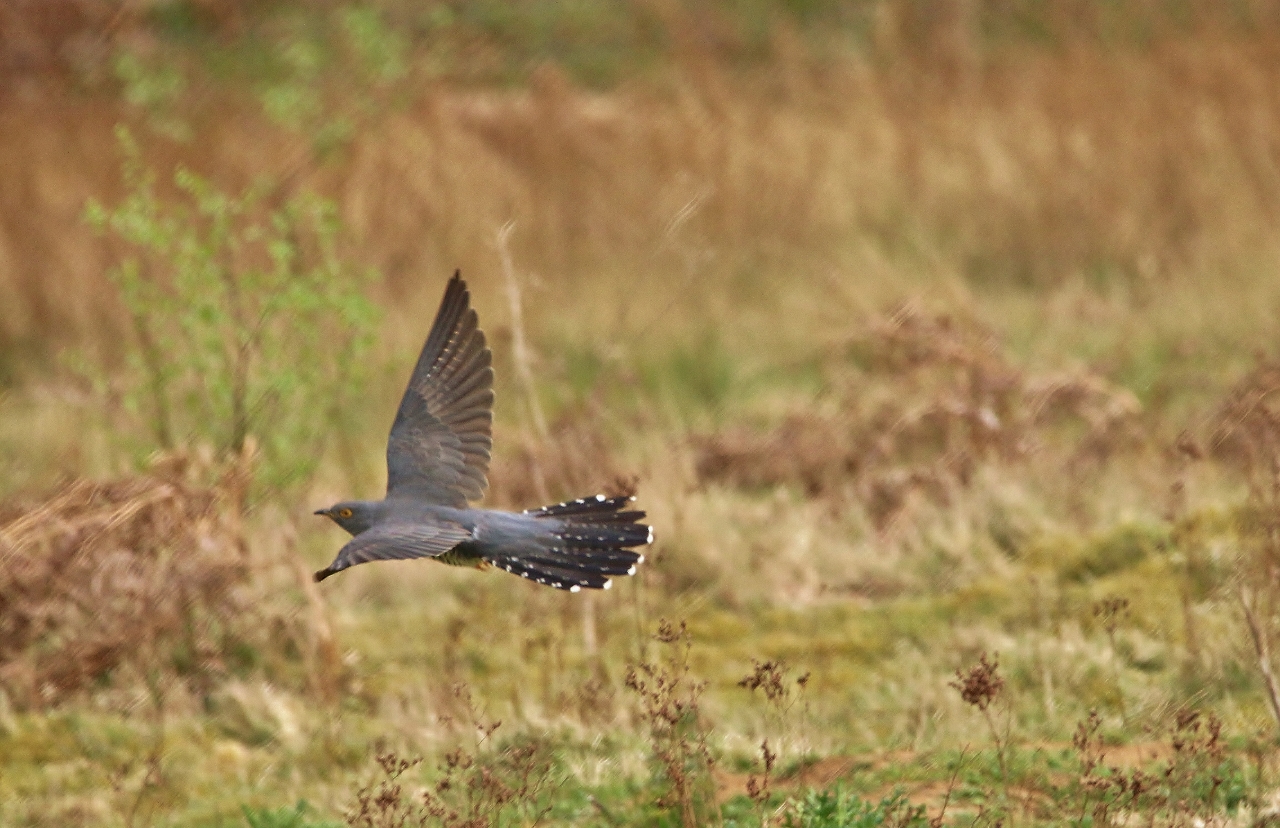

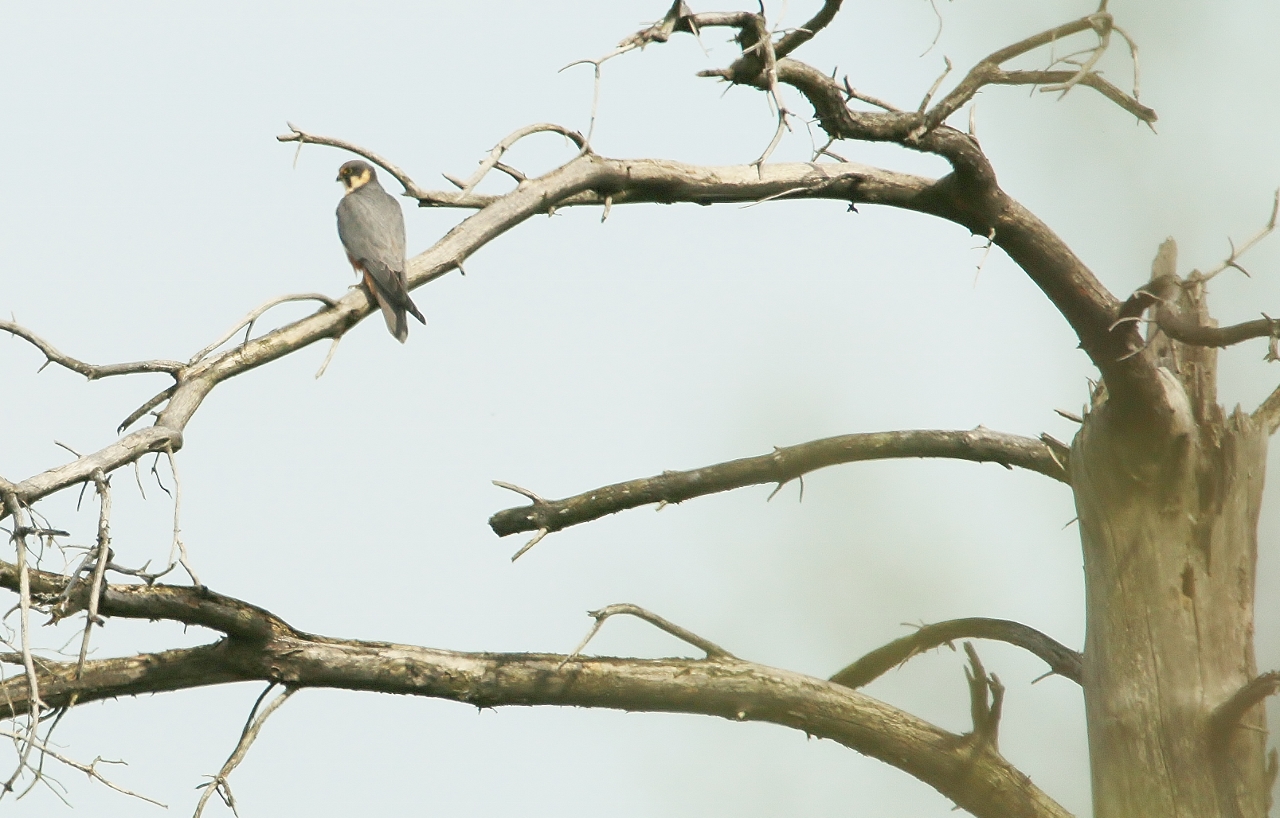
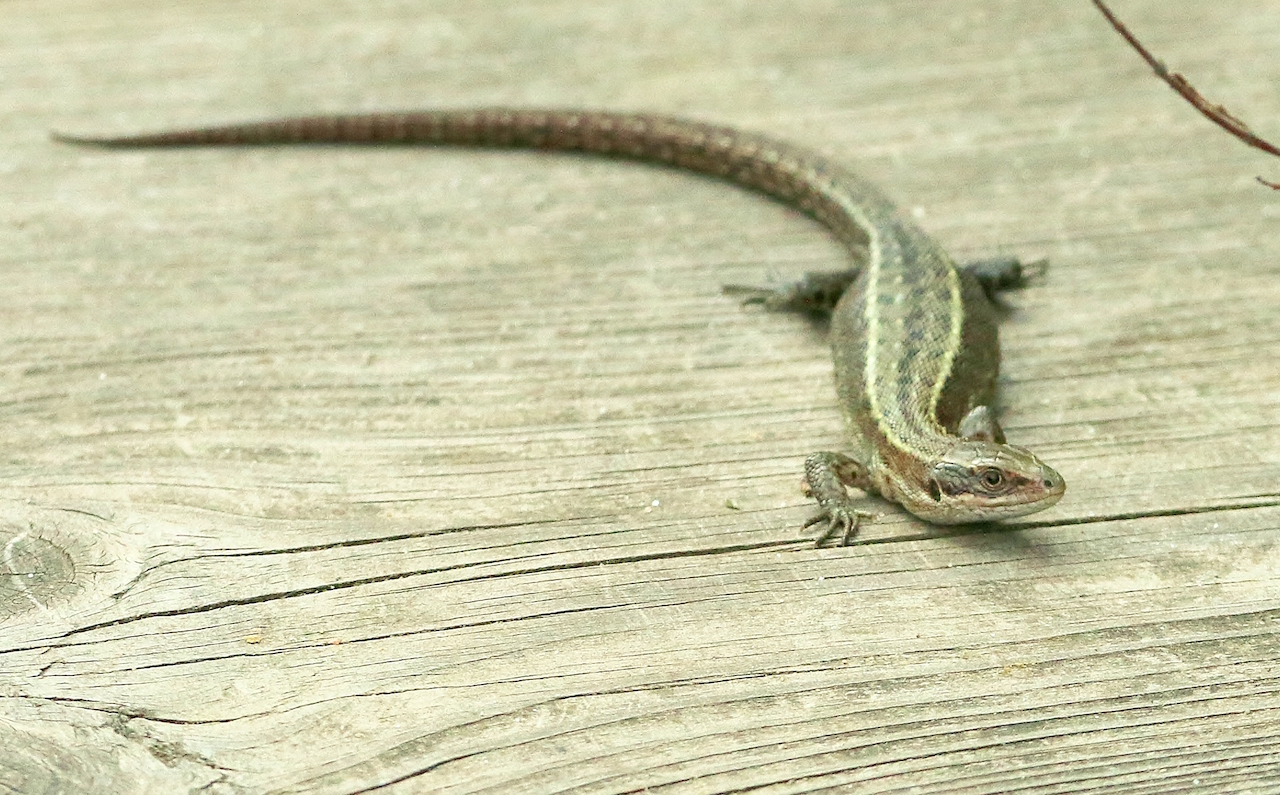
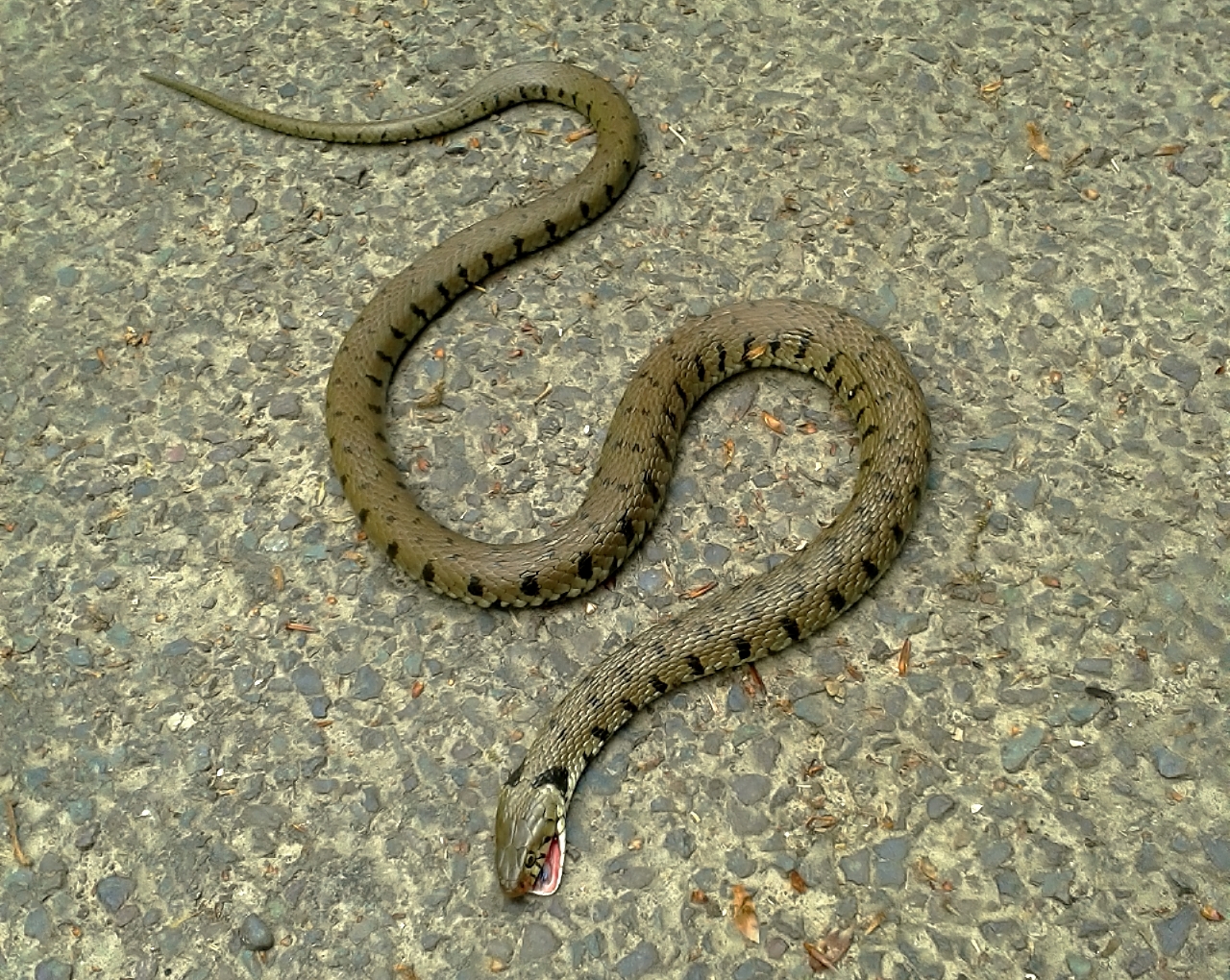
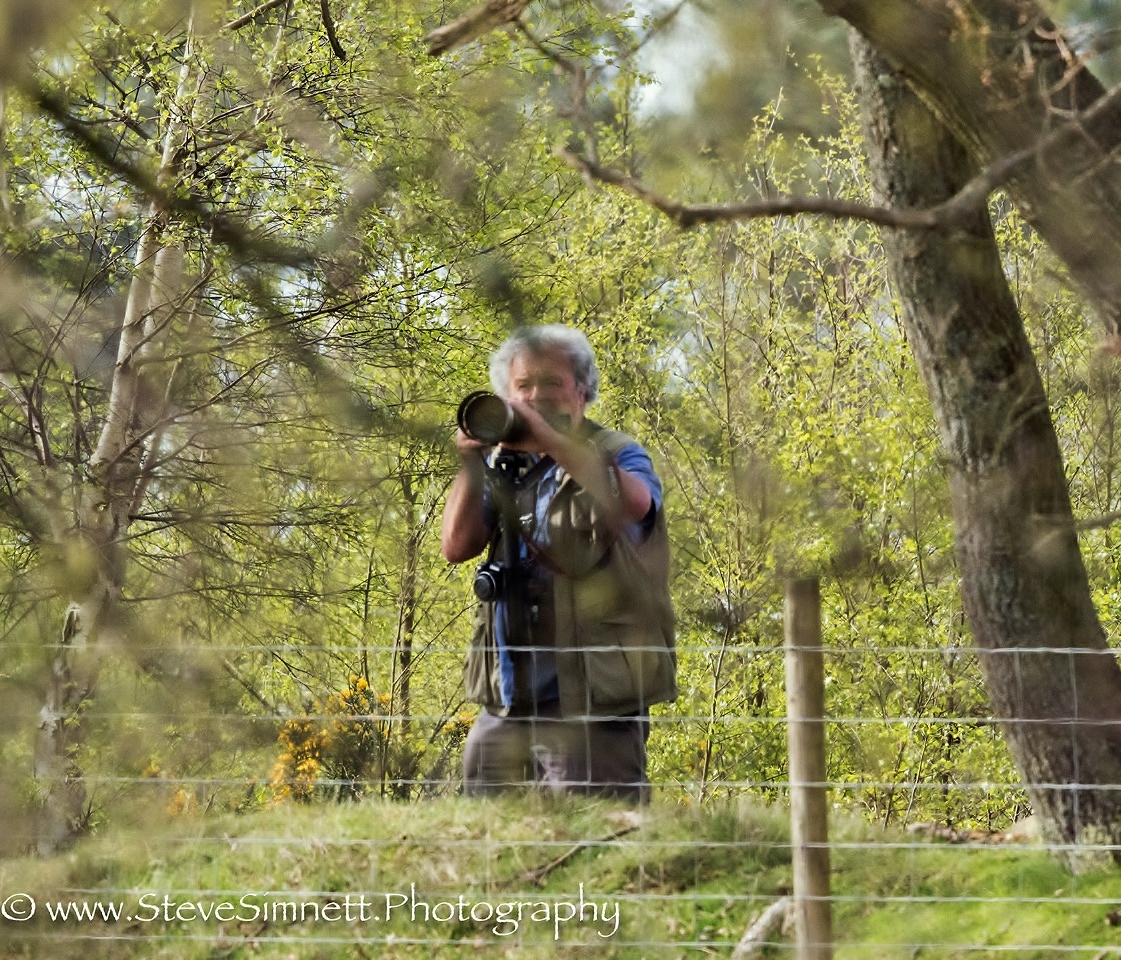



Janice Sartori
May 26, 2016 at 3:35 pm
Wonderful shots, thank you so much.
Simon Pott
May 26, 2016 at 7:45 pm
Fantastic report as usual. Keep up the good work.
Simon Bromfield
May 26, 2016 at 9:39 pm
Great images from Malcom Fincham. The Cuckoo photo’s are excellent. Well done to him. Snowdenham Lake at the end of Mill Lane, Bramley would present some good opportunities.
Malcolm Fincham
June 2, 2016 at 11:44 pm
Always pleasing to get feedback and suggestions from my readers. Thank you for the inspiring comments.